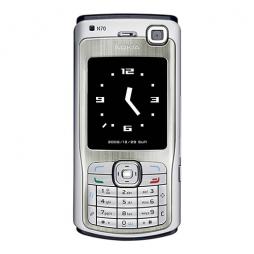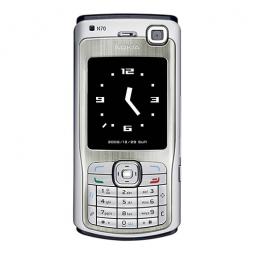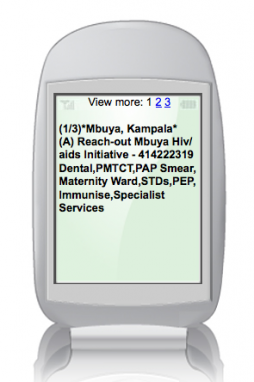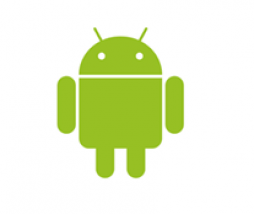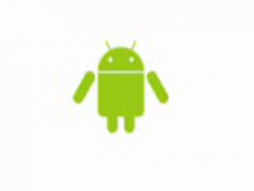google
Posted by AnneryanHeatwole on Apr 29, 2011
In today's Mobile Minute, we look at CGAP's coverage on branchless banking and micro-insurance, report on Nielsen and mobile privacy concerns, look at how the New York Times investigates Google's mobile approach and how smartphones are collecting data about cell towers and Wi-Fi hot spots. Lastly, a meetup for those interested in mHealth and ICT4D.
Interested in how branchless banking and micro-insurance can work together? GCAP has a roundup of three different organizations (from Ghana, the Philippines, and Kenya) that have paired mobile banking and micro-insurance in order to reach the unbanked and uninsured.
Posted by AnneryanHeatwole on Sep 14, 2010
Today's Mobile Minute brings you coverage on Australia's record mobile web usage during the recent elections there, how telecom's price wars in Kenya have pushed down prices, why carriers may have raised the price of Google's Nexus One, a project Ugandan refugees using mobiles to find missing family, and competition for data-enabled handsets in Africa.
Posted by AnneryanHeatwole on Aug 30, 2010
The Mobile Minute is back with the latest mobile news. What's happening today? FrontlineSMS now supports MMS via email and offers scheduling features, an infographic breaks down the overlap between social networks and mobile phones, non-profits are ramping up their use of mobile giving campaigns, and Google introduces a new computer-to-phone voice service.
Posted by AnneryanHeatwole on Jul 16, 2010
The Mobile Minute, our new feature, is here to keep you up-to-date on mobile-related news. Today's stories are about the number of Google searches made on mobile phones, an updated version of the PDA survey kit, the relationship between ICTs and accountable governments, and an octopus-themed mobile app.
- "Mobile Accounts for 10% of Google Searches, Says Analyst" This Read, Write, Web article looks at comScore search market data – and found that mobile phones are used to make more than 1 billion monthly Google searches in the U.S.
- "WFP PDASurvey" The World Food Program released an updated version of its PDA-based data collection tool. The group says that the program "allows very large questionnaires to be built very rapidly and deployed onto many PDAs using flash memory cards."
- "Full Circle: ANSA-Africa Newsletter" The latest ANSA-Africa Newsletter looks at government accountability and the role ICTs can play in giving citizens a means of expression. Other topics include local government social media and responsibility, ICTs in Kenya, and creating connections in Bangladesh. (via Accountability 2.0)
- "Paul the Psychic Octopus Gets an App" If you find yourself without psychic guidance now that Paul the Octopus (who gained fame by correctly predicting all of Germany's World Cup matches, as well as the final) has retired, a new iPhone app called "Ask the Octopus Oracle" can fill the void.
[Mobile Minute Disclaimer: The Mobile Minute is a quick round-up of interesting stories that have come across our RSS and Twitter feeds to keep you informed of the rapid pace of innovation. Read them and enjoy them, but know that we have not deeply investigated these news items. For more in-depth information about the ever-growing field of mobile tech for social change, check out our blog-posts, white papers and research, how-tos, and case studies.]
Image courtesy Flickr user QiFei
Posted by KatrinVerclas on Jul 01, 2009
My post on Google's SMS services raised quite the storm in the waterglass. Erik Hersman took me to taks for, as he sees it, questioning that "if people who are claiming to help the poor should charge, and if so, should they make a profit."
However, this was not my point. My question was why, given the target audience as noted in the Google post and Grameen Foundation press release, for at least one of the services (SMS Tips) the cost per SMS comes at the highest premium price but is not advertised as such in the promotional literature and PR. Secondly, given that Google Labs in India makes a smilar SMS info service available at the regular cost of an SMS in India (which is exceedingly cheap), why does Google behave so differently in the African market, in essence colluding with the absorbitantly high costs of SMS there?
So I emailed Rachel Payne, Google’s lead in Uganda to clarify the costs that I only speculated about. Here is what she says, clarifying the pricing:
Posted by KatrinVerclas on Jun 30, 2009
Google, in partnership with MTN Uganda, has launched 'Google SMS', a set of services that allows users in the country to access SMS information services. These include, for example, access to health and agriculture tips, weather information, and news and sports. Google offers these online information services aready on the web, but is now expanding them to SMS - however, at a high price per SMS.
"We seek to serve a broad base of people -- not only those who can afford to access the Internet from the convenience of their workplace or with a computer at home," said Rachel Payne, Google's country manager for Uganda, in a post on the Google blog.
Posted by KatrinVerclas on Feb 21, 2009
In 2006 alone, aid organizations such as the Measles Initiative and UNICEF distributed almost 20 million bed nets to prevent Malaria submission in ten African countries, including Ethiopia, Kenya and Nigeria. The distribution and supply management of bed nets, and the follow-up surveys of recipients of bed nets --insecticide-treated nets that can reduce malaria transmission of as much as 90% in areas with high coverage rates--is a daunting logistical challenge.
Aid organizations everywhere are discovering that mobile phones are an essential part in managing supplies and distribution of nets, food, and other aid. Rapid Android is a new tool now being tested in Nigeria by UNICEF for the distribution of bed nets. Rapid Android is a supply chain management and data collection tool built on Android, the open source operating system developed by The Open Handset Alliance and Google.
Posted by KatrinVerclas on Nov 16, 2008
Google Labs in India recenty launched SMS Channels, a new, free SMS messaging service for India only that may prove to be incredibly useful for citizen groups and NGOs. The service allows anyone to set up a group of mobile subscribers to message to, or for a group to message each other many-to-many. A user can receive news alerts and blog updates via SMS, for example; or a group can group-text message to each other.
There are many commercial group messaging solutions in India where the primary means of mobile communiations is SMS. However, unlike GupShup, Zook, and MyToday, Google’s SMS channel is two-way allowing for SMS discussions and also enabling subscribers to publish to the channel.
Posted by KatrinVerclas on Jan 30, 2008
We have written previously about the Android Developer Challenge by Google that has a strong emphasis on humanitarian applaications. Because (we think) the process and SDK was rather buggy, Google has decided to move the submission deadline for the first Android Developers Challenge to 14 April 2008.
From the Android blog:
Posted by KatrinVerclas on Nov 05, 2007
Google announced today Android and of the Open Handset Alliance, throwing wide open the field of mobile applications for commercial and social and civic causes and potentially much cheaper handsets that are especially important in developing countries. We here at MobileActive.org think that this will spur developments for the social sector that are faster and cheaper -- an "Android for Good."
The Open Handset Alliance is a consortium of more than 30 tech and mobile companies and Android is its open platform. Google's support of the project and development of the new mobile app software stack that includes an operating system, moddleware and open applications development is significant and seen as a major competitor to other mobile platform providers such as Microsoft, RIM, and Symbian.
